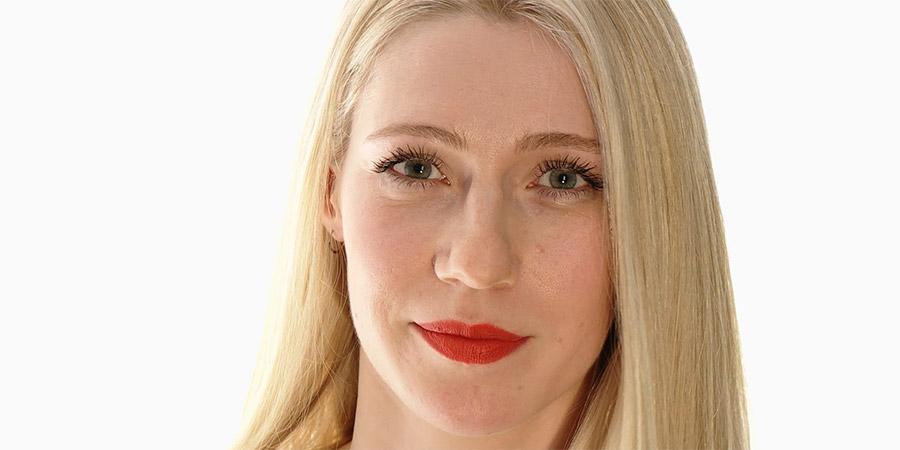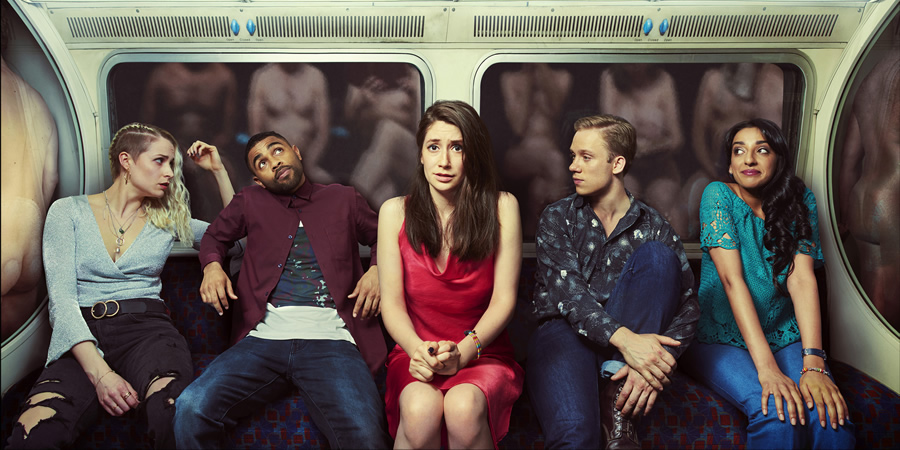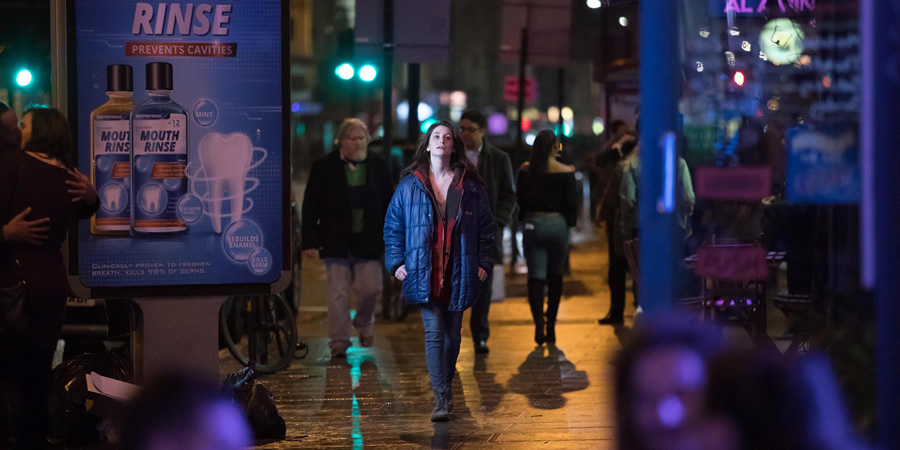Rose Cartwright interview

Rose Cartwright, who wrote the book on which Pure is based, talks about her experiences with OCD.
Pure deals with your experiences of Pure O. Can you explain what that is?
Pure O is just a nickname for a certain manifestation of OCD. Most people think that OCD is to do with cleanliness or order or germs - actually it's a really wide-ranging condition whereby people get intrusive thoughts and obsessions that they then feel the need to neutralise with a compulsion. So that can be germs on the table, but it can also be themes of sexuality, love for one's partner, capacity to commit acts of violence - and Pure O refers to the purely obsessional kind of OCD where you get these obsessions, and you're not acting out physical compulsions, but you're performing compulsions in your brain, like reassurances, rumination, making mental checklists. So it's OCD like any other OCD, but it's much more hidden.
The genesis of your book began with a Guardian article in 2013. Can you explain why you decided to write the article?
In 2013 I'd been experiencing OCD for about 12 years, since I was 15, and I had, for many of those years, been in a very bad way indeed, very low, self-harming, depressive, suicidal, extremely anxious, and I'd had many failed therapies for OCD. By 2013 I was out the other side of much more effective therapy, called Exposure Response Prevention, and I felt a lot more confident, I felt like I knew myself a lot better. I was 27 by that point. It wasn't really a 'decision' to write about it, it just happened.
I was writing anyway, and not getting very much published, so when I realised that I was in possession of a story that had never been told before, it was irresistible. I just had to write it. I knew that this was something that was being experienced by hundreds of thousands of people in secret, and I just wanted to blow the roof off it.

How did you find the experience of writing it? Was it liberating or traumatic?
It was incredibly liberating, to put a lot of care and art into a story that you've been keeping secret for most of your life. To have the authorship over the words and the way you tell it is very empowering. It was a wonderful experience, getting the story out there.
How did you go on to write a book?
The book was kind of a fuller version of the article, and of thoughts and notes I'd been keeping for a couple of years. I just had much more to say about the nuances of that experience - 10 years of keeping it secret and having treatment in secret.
What was the reaction to the book like?
It was really phenomenal. This is a very taboo subject matter - maybe soon we'll be able to use the past tense and say it was a very taboo subject matter ... But this is something that people feel a lot of shame about. I had felt that shame for most of my life, but I'd got to the point where I didn't give a shit anymore. I felt like I could talk about it very freely, and I think people found solace in that, because it showed that this isn't something that needs to be kept hidden - it isn't that shameful, and it is something that can be spoken about and accepted. I haven't been ostracised, I haven't lost relationships, I haven't lost friendships - those things that people with OCD are scared will happen haven't happened to me. I'm still standing, so the reaction was immensely positive.
It must have been quite an emotional experience for your friends and family to read the extent of what you'd been through.
Yeah, it was. That's not an easy book to read. If you love me, that's a very difficult book to read, because all of that was happening without any of my loved ones knowing. I think they experienced a lot of guilt because of that. It's not that I wasn't able to tell them, I wasn't able to tell anybody!
I didn't really understand it myself, I didn't have the words. There's a lot of sadness that that's something I went through alone, but I think overwhelmingly the feeling from my close friends and family is "You're still here, and you're okay," and they're just so glad, and so excited and proud of what this has become.
How did the TV series come about?

When the book was published, I got a call off an agent going "I think this would make a really good TV show, can I represent you?" My first thought was "Really? What sort of TV show is that going to be?" So we punted it out, and then very, very quickly we realised there was a lot of interest from different production companies. So I met different production companies, one of which was Drama Republic. And I understand that someone at Channel 4 had read the book independently and expressed an interest in it, so there was already that step taken care of.
So from the point of deciding to go with Drama Republic, it was very quick. I never assumed we'd get green lit, because stuff never does, so when I got the call saying it was green lit, that was a big deal.
It's a very personal subject matter - did you have any misgivings about having it made into a TV show, and the associated loss of control over the content?
I always knew that I would have to let out some rope with it becoming at TV show, and bring other people in, and let it be other people's baby. I was comfortable with that from the start, but I also knew I needed to stay really close to it, to protect the subjective truth of the central character.
It's not just a show about OCD, it's a show about a lot of things, but effectively Marnie's character arc mirrors mine very closely, and for this to be an authentic show you need to protect that core authenticity. A big part of my role on the show was playing guardian to that, and reading the scripts in a lot of detail, and going "I'm not sure someone with her set of symptoms would respond like that," and laying it all out, and questioning every part of her character, to make it feel really real.
As far as I know, I'm the only person on the core team who's experienced what she's experienced. So I've given away a lot of control, and I'm happy to do that, and the team are so talented, I didn't have any misgivings. But I knew that I couldn't step away completely.
Were you more intent on making sure that it was an accurate representation of OCD than an accurate representation of your life?
It was never going to be an exact representation of what happened to me. I wrote a finite book that covers a specific period of my life. This is a show that we pitched as a returning series, it's a different format, so it was always going to grow, there were always going to be new characters introduced. Yes, I wanted it to be an accurate portrayal of OCD, but at the same time, OCD isn't monolithic either. Mental health is so subjective, it can only ever be one person's story. Two people with OCD will not have the same path, so I can only really speak for myself and my own experiences of OCD.
You met with Charly Clive, who plays Marnie, a number of times. What were your impressions of her?

She's fantastic. The first I saw of her was watching her audition tape, and by then I'd watched several other audition tapes from other girls, and my big fear for Marnie was that we'd fall into the trap, which I think a lot of British drama falls into, where you'd get a quite hammy stage school performance.
I grew up in the Black Country in a working class family, I can't have a stage school kid with a plum in their mouth playing this character. Some of the audition tapes felt like that, and they were really uncomfortable to watch, because the girls were overacting the anxiety, and I could tell they weren't really connecting with the emotion. And when I watched Charly's tape, it was so real, it's like I wasn't even watching an actor. She just had something special and unique, where I felt like "She gets suffering, and it's coming from a real place." It was such a relief, we just felt like "She's got this."
Did she ask you for advice about how situations felt?
Yeah, we met various times, and just by spending time together we developed quite an intimate connection. I feel like we get each other, and although she hasn't experienced OCD, she's got her own stuff to draw on, and that's really important. She's nearly 10 years younger than me, but I've learned so much from her, she's so emotionally intelligent, so bright and so talented. It's been a real privilege to work with her.
What's it like watching her go through stuff that you went through, seeing all the disturbing images that troubled you? How does it feel watching that back on film?
It's a million feelings all at once, but ultimately it's so incredibly exciting. I remember the first time I went down to set. The whole show is set in East London, which is where I set the book, because that's where I really came of age, and where I was dealing with the worst of this.
We were shooting on Shoreditch High Street, I used to live round the corner from there, so I'd walked up that same stretch of road in various states of mind - pissed out of my head, or having the worst thoughts, feeling like I can't do this, I can't wake up tomorrow. I turned the corner at the top, and I looked down Shoreditch High Street, and there were like 60 guys in high vis jackets and big floodlights and a million extras. And the scene they were shooting was an intrusive thought, and I heard the gaffer shout "Okay, now we're going to do an intrusive thought," and they got these big privacy screens up. Seeing that being dealt with in such a casual way, and hearing the crew joking about it, and hearing the literacy of the crew with that subject matter, just felt amazing.
This thing I'd kept secret for my entire adult life, I'm now standing in front of a crew of professionals who have all been brought in to render this into a piece of entertainment. There were so many experiences on set like that, where it drew really closely on what I'd experienced myself. It's just so liberating to have that, such a privilege. Who gets that? Therapy through storytelling.

What do you think of the end product?
I think it's absolutely fantastic. It's been amazing to learn how hard it is to make a TV show, how much is involved, how many thousands of hours of work go into it. Everyone on the team worked their asses off. At the end of it, we were all kind of knackered, but it was so worth it. I think it's the best portrayal of OCD that anyone will ever have seen.
For a show about mental health, it's really funny and at times really uplifting, isn't it?
Yeah, I think the humour has always been really important to me in dealing with the subject matter. It can be quite harrowing, and in a way humour is a tool, because the reality of OCD is drudgery and misery for long swathes of time. That doesn't make a very good TV show, or a very good book, so if you can draw on humour to bring those experiences to life, in a way that makes people want to engage with the subject, then you're winning. I think the book did it, I think the show does it. I mean, who's going to watch a po-faced six-part drama series about intrusive sexual thoughts, if it's not funny? It would be unwatchable. In the book, I tried to capture the absurdity of intrusive thoughts, and I think it comes across really beautifully in the show, thanks to Kirstie's talent and natural sense of humour, and Aneil (lead director) and Alicia's (second block director) comic timing.
You are a public face of OCD. Does that carry with it responsibilities? How do you deal with that?
I do feel responsibility, I take it very seriously. I think I've expressed some things that many, many people are dealing with, and they feel like they can relate to me personally because of that. That is at once an amazing privilege but also can be really tricky to deal with.
I get a drip feed every day of people approaching me on social, saying "I am suffering, I need your help." That's sad, because it means they feel they're not getting help elsewhere and I don't have the resources, or the expertise, to be giving people advice. I'm hoping that the show really shakes the snow globe of the mental health conversation, and inspires more support networks to be created.
As you've said, OCD is not monolithic, and manifests itself differently from one person to another. But what advice would you give to people who watch this series and think "Yeah, that's me?"
I would say educate yourself, and take responsibility for your own journey and your own path. I think we're taught in the west to place a final solution of care onto doctors, and we're always looking for a cure. Ultimately we're all responsible for the lives and minds that we create for ourselves. So get educated, go and see a professional, but ultimately, use your head and trust it, because people do, and they get through it, and it's a very treatable condition, and you can get through it and have a great life if you get a handle on it.
Lastly, how are you now?
I'm really well. I still have intrusive thoughts that I feel compelled to grapple with every day. But I think that's part of me. I don't think I could take it out and still be the same person. I think it's part of the way my mind is, for whatever reason. There is still suffering, but it's manageable, and I wouldn't give it up for the positives.
Rose Bretécher - Pure

Rose Bretécher has OCD, but not as you know it. Pure is the true story of her life with intrusive sexual thoughts - a rampant but little-known symptom of the disorder. It tracks her farcical ten-year path to redemption, from the time she was first seized by graphic mental images to her eventual recovery through therapy, acceptance and love.
The book describes her obsessive questioning of her identity and her compulsive search for an answer: driving across the world in a double-decker bus; debating the respective erotic allure of Cherie and Tony Blair; watching Jake Gyllenhaal's face turn into a chubby vagina... Eventually, after stepping back from the iron railings of a snow-swept balcony in east London, she finds joy in the inescapable truth that when it comes to who we are, there are no neat conclusions.
At its core, Pure is about uncertainty and insecurity, and how trying to banish these things in the pursuit of happiness will paradoxically make us unhappy. It's about finding beauty in greyness, and embracing the unfathomable weirdness of the human mind.
First published: Thursday 24th September 2015
- Publisher: Unbound
- Pages: 288
- Catalogue: 9781783521128
![]() Buy and sell old and new items
Buy and sell old and new items
Search for this product on eBay
BCG may earn commission on sales generated through the links above.
- Published: Thursday 7th April 2016
- Publisher: Unbound
- Pages: 288
- Catalogue: 9781783522484
![]() Buy and sell old and new items
Buy and sell old and new items
Search for this product on eBay
BCG may earn commission on sales generated through the links above.
- Publisher: Unbound
- Download: 1.24mb
BCG may earn commission on sales generated through the links above.

